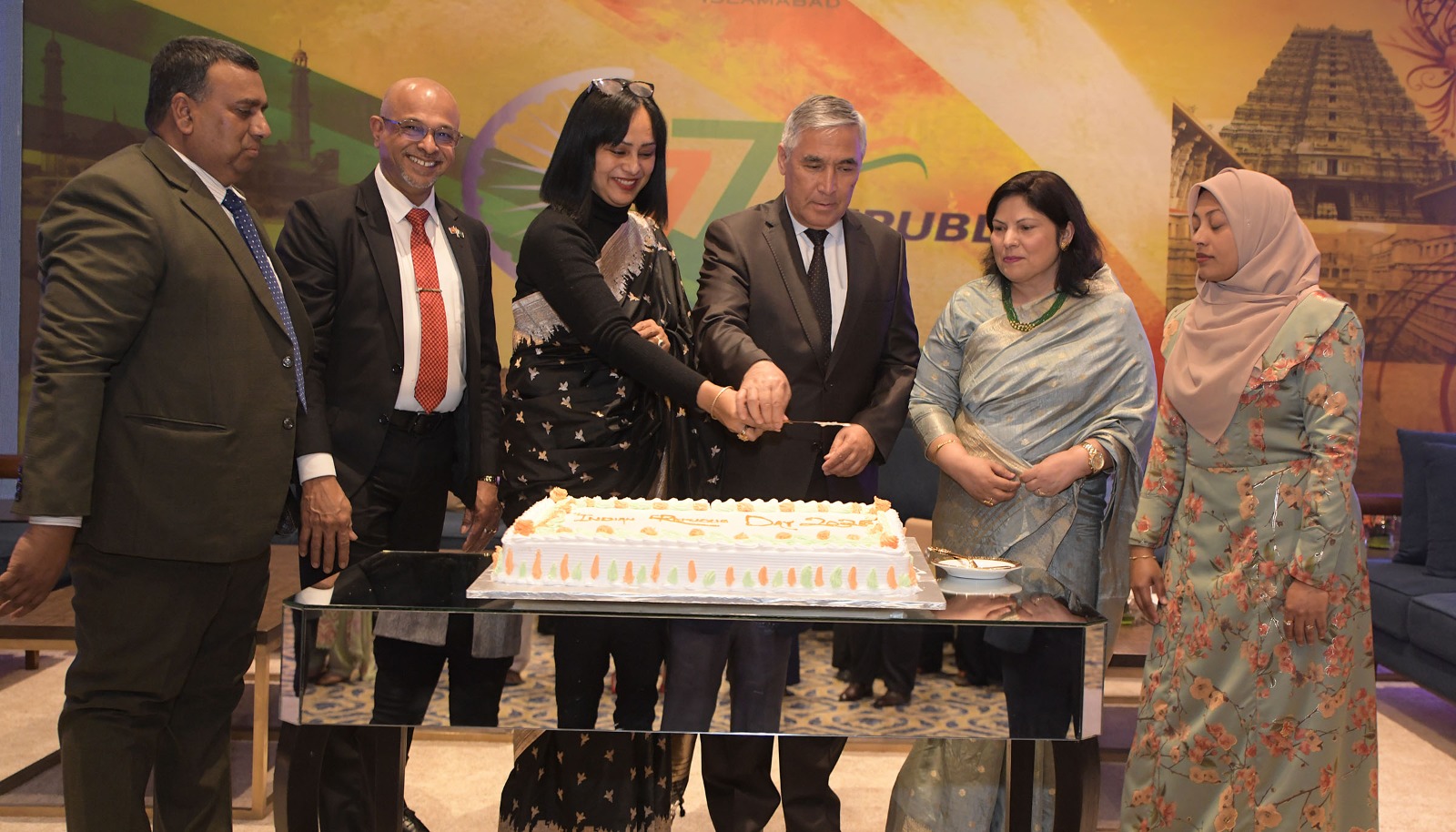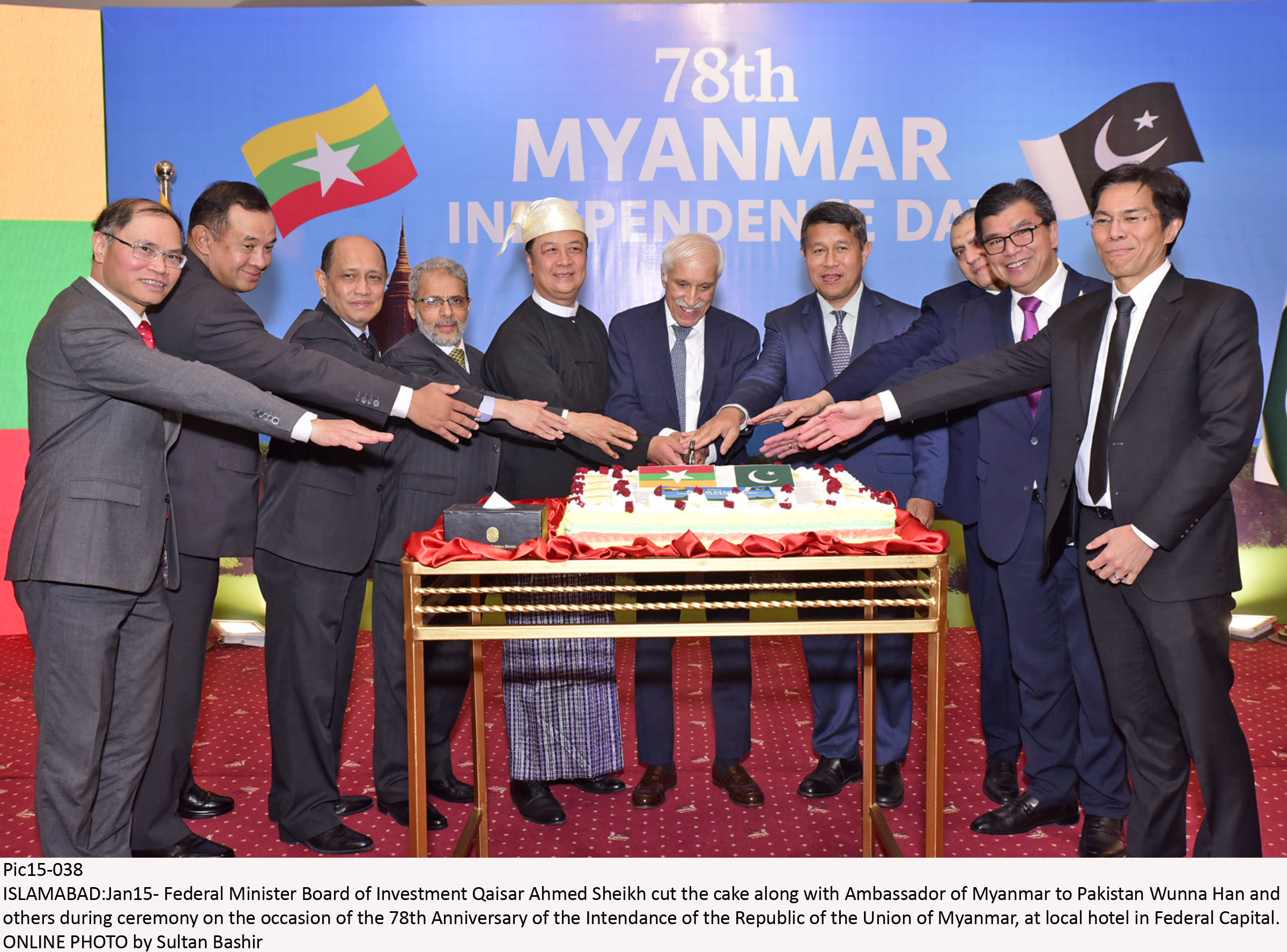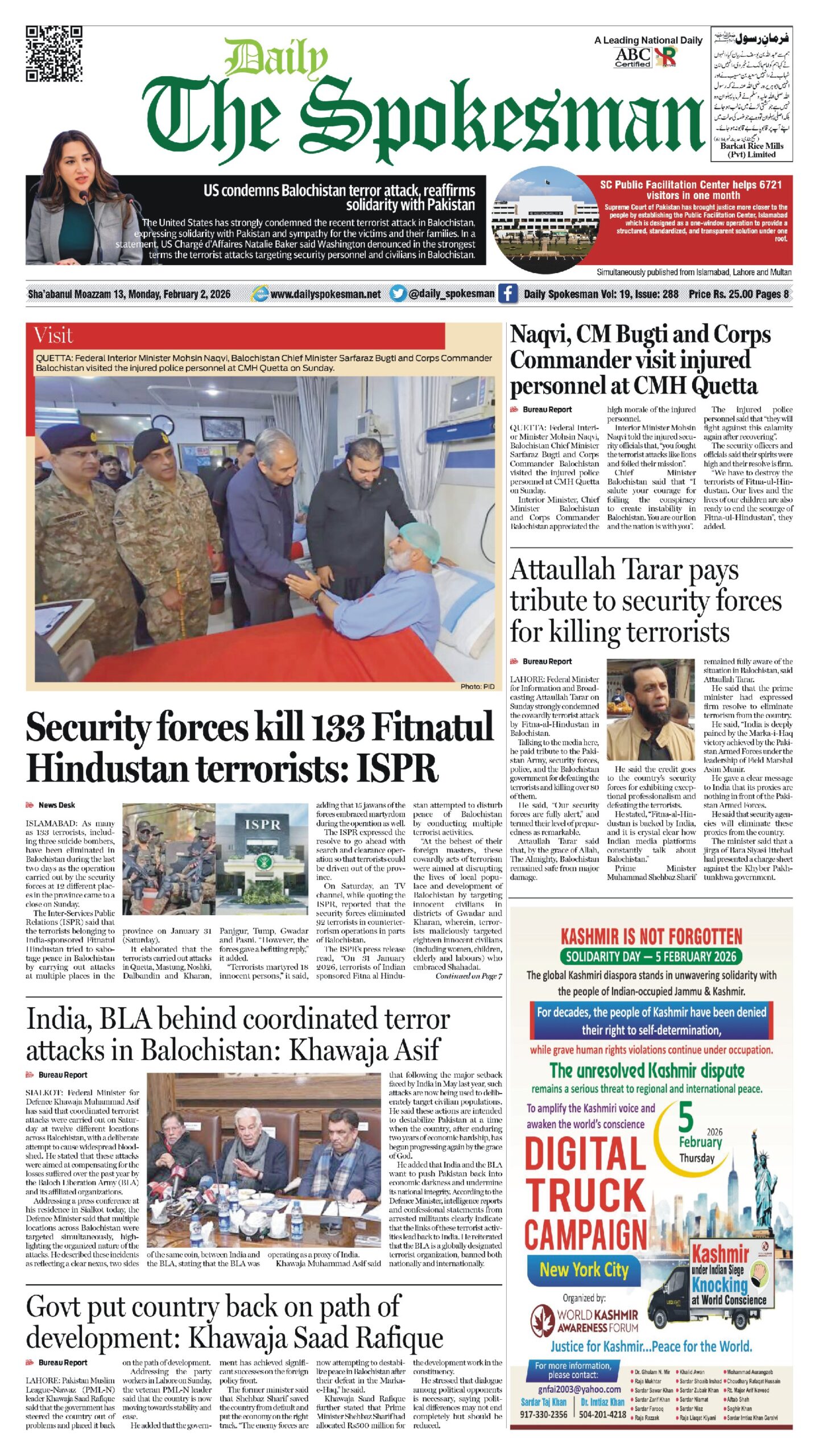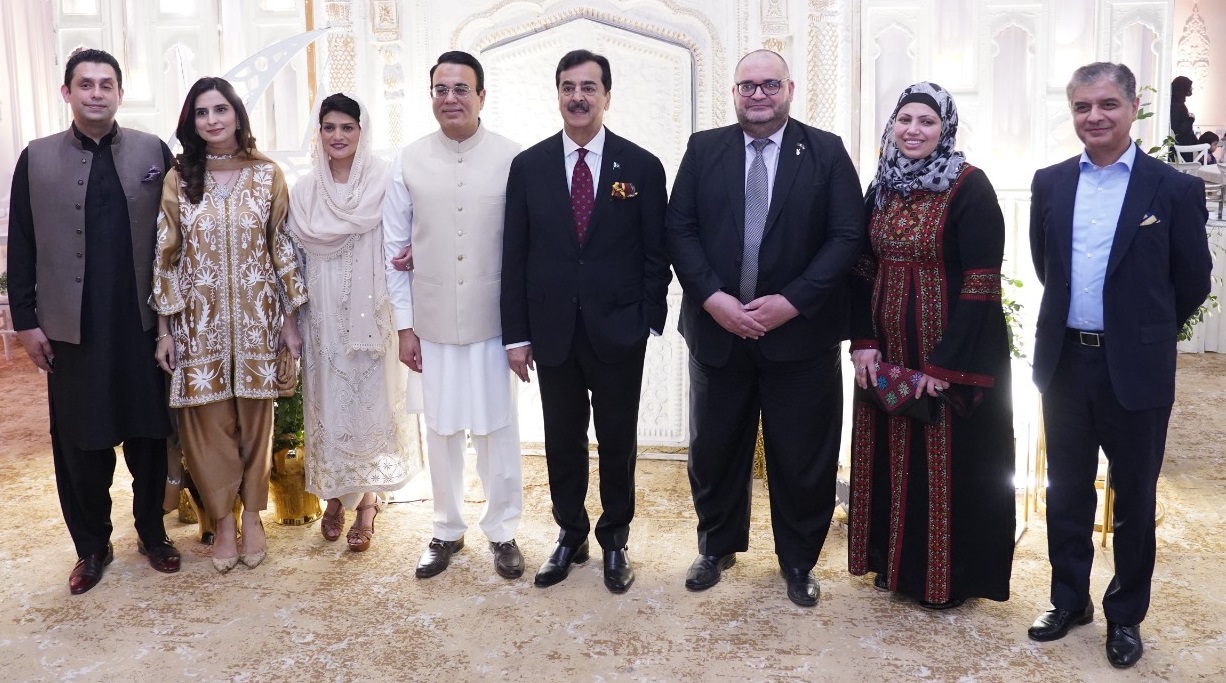
Naveed Ahmed Khan Photo By Ramzan Mughal
ISLAMABAD—The federal capital witnessed one of the grandest Iftar gatherings of Ramadan as Luqman Ali Afzal, CEO and founder of Monal Group, hosted an extravagant Iftar-dinner. The event, attended by dignitaries, diplomats, and business leaders, underscored the significance of hospitality and its connection to Pakistan’s tourism sector. Among the distinguished attendees were Chairman Senate Syed Yousuf Raza Gillani, Chargé d’Affaires of the U.S. Embassy in Islamabad, Natalie A. Baker, CEO of Serena Hotels, Mr. & Mrs. Aziz Boolani, senior political leaders, diplomats, bureaucrats, and media representatives. The gathering reflected a remarkable blend of social, political, and corporate sectors coming together in the spirit of Ramadan.
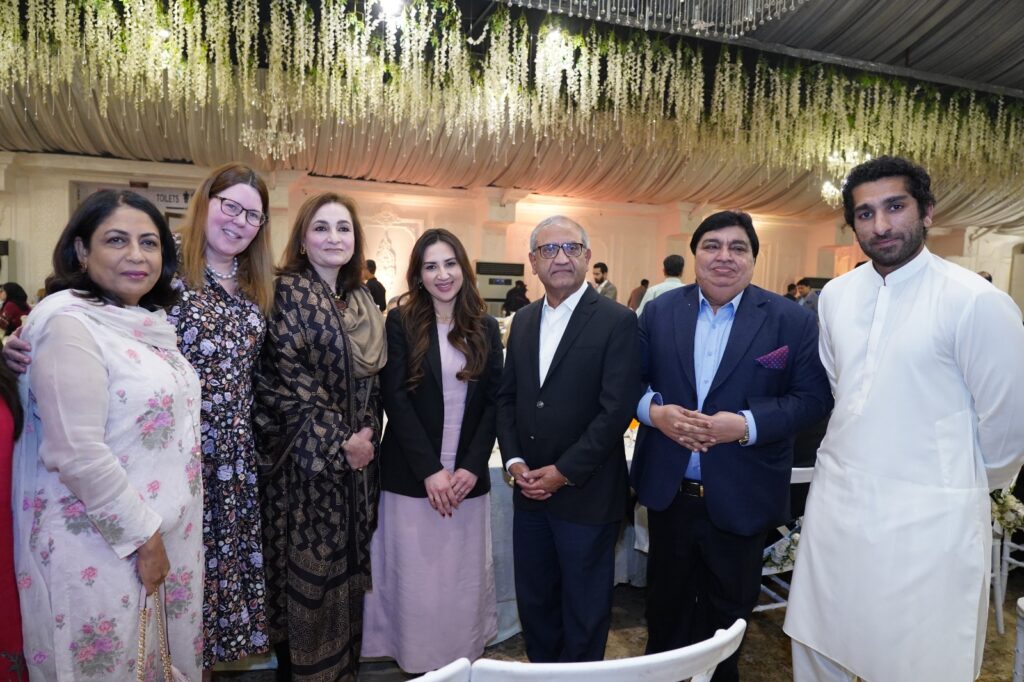 Luqman Ali Afzal, known for his deep-rooted sense of hospitality, personally ensured that every guest felt welcomed. Speaking on the occasion, he emphasized that Ramadan is a month of self-reflection, unity, and generosity. He highlighted how communal Iftar meals create bonds among people from different walks of life, fostering social cohesion and solidarity.
Luqman Ali Afzal, known for his deep-rooted sense of hospitality, personally ensured that every guest felt welcomed. Speaking on the occasion, he emphasized that Ramadan is a month of self-reflection, unity, and generosity. He highlighted how communal Iftar meals create bonds among people from different walks of life, fostering social cohesion and solidarity.
While addressing the gathering, Mr. Luqman pivoted the discussion towards Pakistan’s tourism industry, stressing that despite its immense potential, several infrastructural challenges hinder growth. He posed a thought-provoking question: Can a local or foreign tourist travel comfortably from Islamabad to Hunza without facing basic inconveniences such as clean restrooms, reliable eateries, or roadside assistance? He drew comparisons with Indonesia, Malaysia, Thailand, Nepal, and Uzbekistan, where tourism and hospitality significantly contribute to national economies. He called for urgent investment in infrastructure and a well-regulated hospitality industry to position Pakistan as a prime global travel destination.
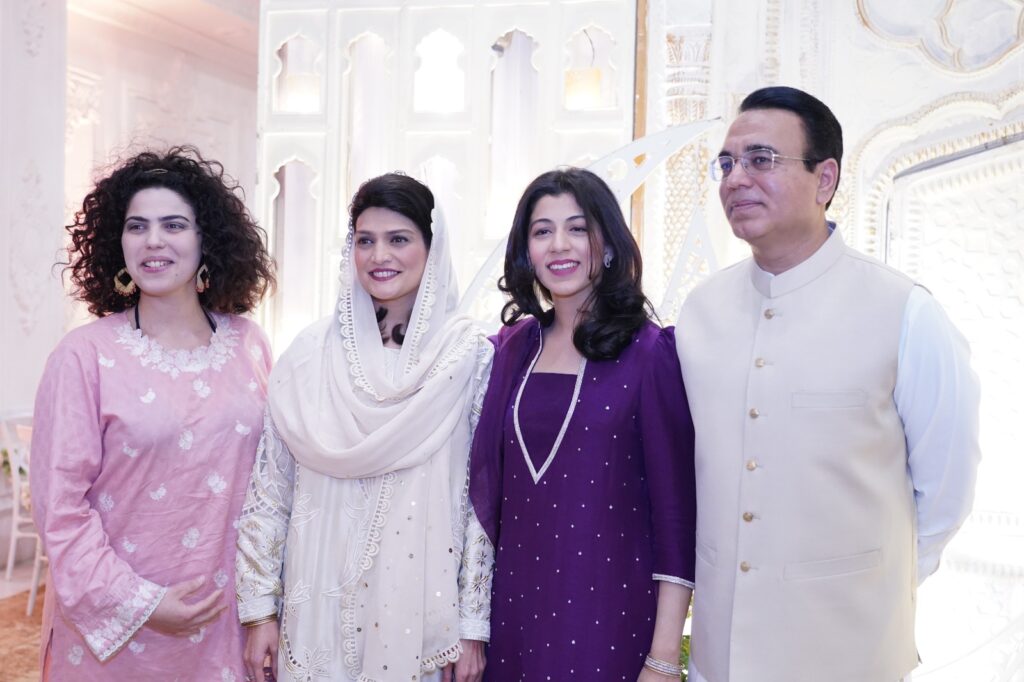 Ramadan is not only a time for fasting but also a period of spiritual renewal and self-discipline. As stated in the Holy Quran: “O believers! Fasting is prescribed for you—as it was for those before you—so perhaps you will gain Taqwa.” (Quran 2:183). Taqwa, or God-consciousness, plays a vital role in fostering ethical responsibility in personal and social life. The Prophet Muhammad (PBUH) further emphasized the significance of fasting, stating, “Every good deed of Adam’s son is for him except fasting; it is for Me, and I shall reward for it.” (Sahih Bukhari 5927). The spiritual exercise of fasting reminds individuals to think beyond material gains and focus on moral and communal responsibilities. However, in contrast to many non-Muslims who fast for health reasons alone, the essence of Ramadan goes beyond physical benefits—it is about attaining a higher moral standard, fostering unity, and supporting the less fortunate.
Ramadan is not only a time for fasting but also a period of spiritual renewal and self-discipline. As stated in the Holy Quran: “O believers! Fasting is prescribed for you—as it was for those before you—so perhaps you will gain Taqwa.” (Quran 2:183). Taqwa, or God-consciousness, plays a vital role in fostering ethical responsibility in personal and social life. The Prophet Muhammad (PBUH) further emphasized the significance of fasting, stating, “Every good deed of Adam’s son is for him except fasting; it is for Me, and I shall reward for it.” (Sahih Bukhari 5927). The spiritual exercise of fasting reminds individuals to think beyond material gains and focus on moral and communal responsibilities. However, in contrast to many non-Muslims who fast for health reasons alone, the essence of Ramadan goes beyond physical benefits—it is about attaining a higher moral standard, fostering unity, and supporting the less fortunate.
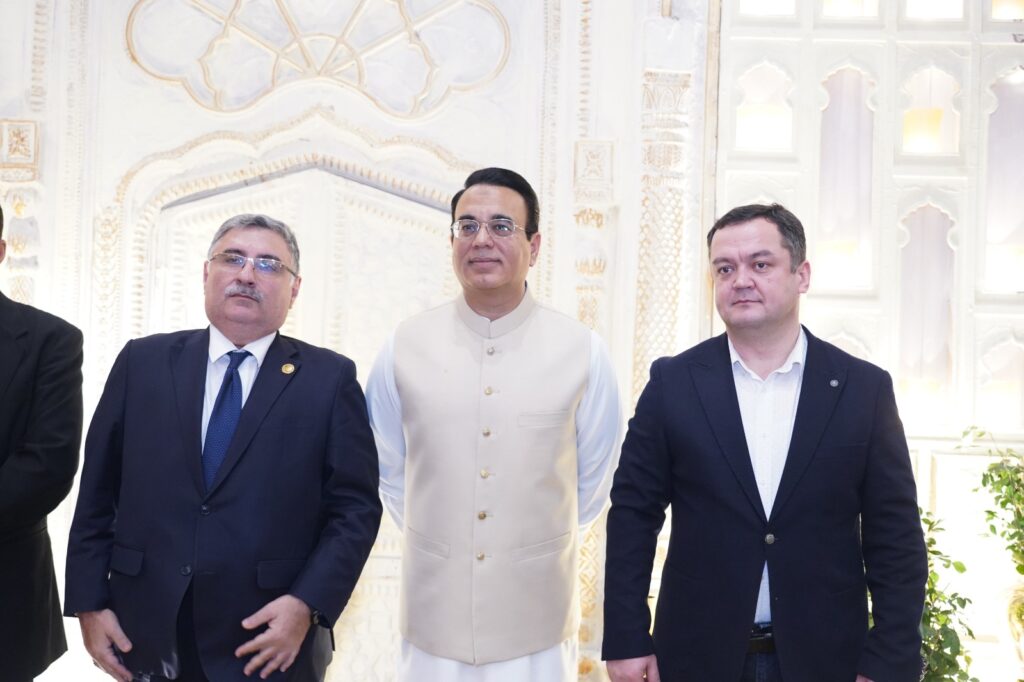 Expanding on the topic of tourism development, Zahid Latif Khan, Chairman of ISE Tower REIT Management Company Limited, stressed that Pakistan must integrate tourism and hospitality education into its academic institutions. Countries with thriving tourism industries invest in hotel management and tourist guide training, ensuring their workforce is well-equipped to cater to travelers.
Expanding on the topic of tourism development, Zahid Latif Khan, Chairman of ISE Tower REIT Management Company Limited, stressed that Pakistan must integrate tourism and hospitality education into its academic institutions. Countries with thriving tourism industries invest in hotel management and tourist guide training, ensuring their workforce is well-equipped to cater to travelers.
He urged the establishment of dedicated tourism and hospitality departments in universities across Khyber Pakhtunkhwa (KP), Azad Jammu & Kashmir (AJK), and Gilgit-Baltistan (GB). These institutions should collaborate with international experts to train students on best practices in tourism management, sustainable development, and cultural promotion.
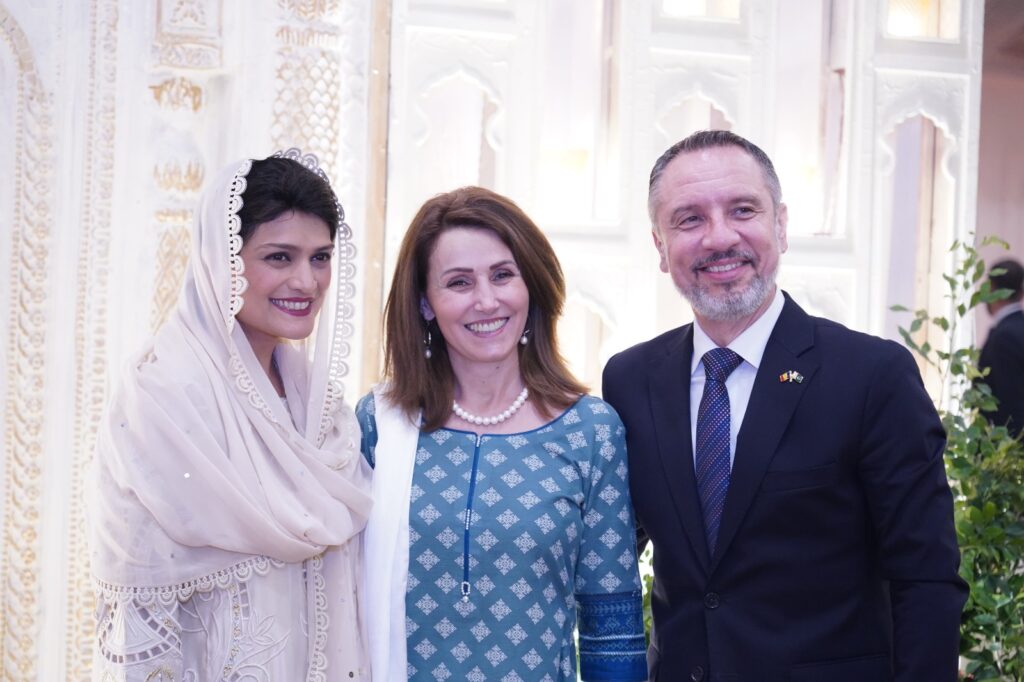 Pakistan is home to rich religious heritage sites that remain underutilized in global tourism. Ahsan Zafar Bakhtawari, Former President of the Islamabad Chamber of Commerce & Industry, pointed out that while around 7,500 Sikh pilgrims from India and 2,000 from Europe, the USA, and Canada visit Pakistan annually, these numbers are far below the potential. Similarly, Pakistan receives approximately 2,000 Buddhist visitors, despite housing some of the most significant Buddhist heritage sites.
Pakistan is home to rich religious heritage sites that remain underutilized in global tourism. Ahsan Zafar Bakhtawari, Former President of the Islamabad Chamber of Commerce & Industry, pointed out that while around 7,500 Sikh pilgrims from India and 2,000 from Europe, the USA, and Canada visit Pakistan annually, these numbers are far below the potential. Similarly, Pakistan receives approximately 2,000 Buddhist visitors, despite housing some of the most significant Buddhist heritage sites.
To boost religious tourism, he advocated for inter-religious harmony and international collaborations. With an estimated 30 million Sikhs and 500 million Buddhists worldwide, Pakistan has the opportunity to attract a vast number of faith-based travelers, strengthening its economy and cultural ties globally.
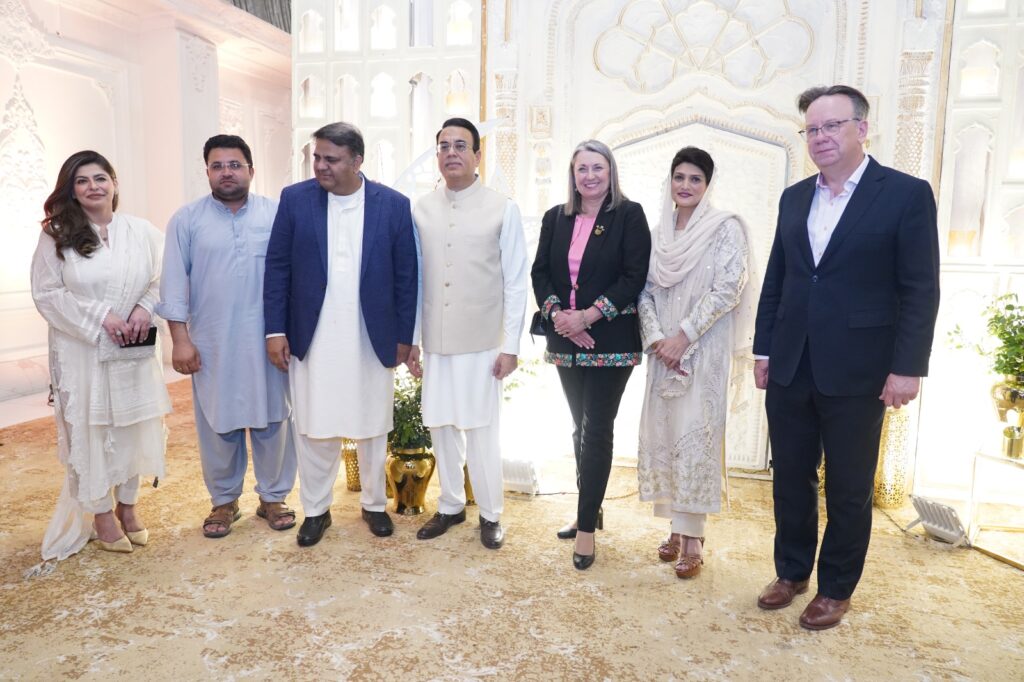 Diplomats at the event praised Mr. Luqman Ali Afzal for his contributions to promoting Pakistan’s soft image internationally. The evening concluded with a renewed commitment to developing Pakistan’s tourism and hospitality sectors. Leaders across industries agreed that improving infrastructure, investing in education, and fostering religious tourism could transform Pakistan into a thriving global travel destination.
Diplomats at the event praised Mr. Luqman Ali Afzal for his contributions to promoting Pakistan’s soft image internationally. The evening concluded with a renewed commitment to developing Pakistan’s tourism and hospitality sectors. Leaders across industries agreed that improving infrastructure, investing in education, and fostering religious tourism could transform Pakistan into a thriving global travel destination.
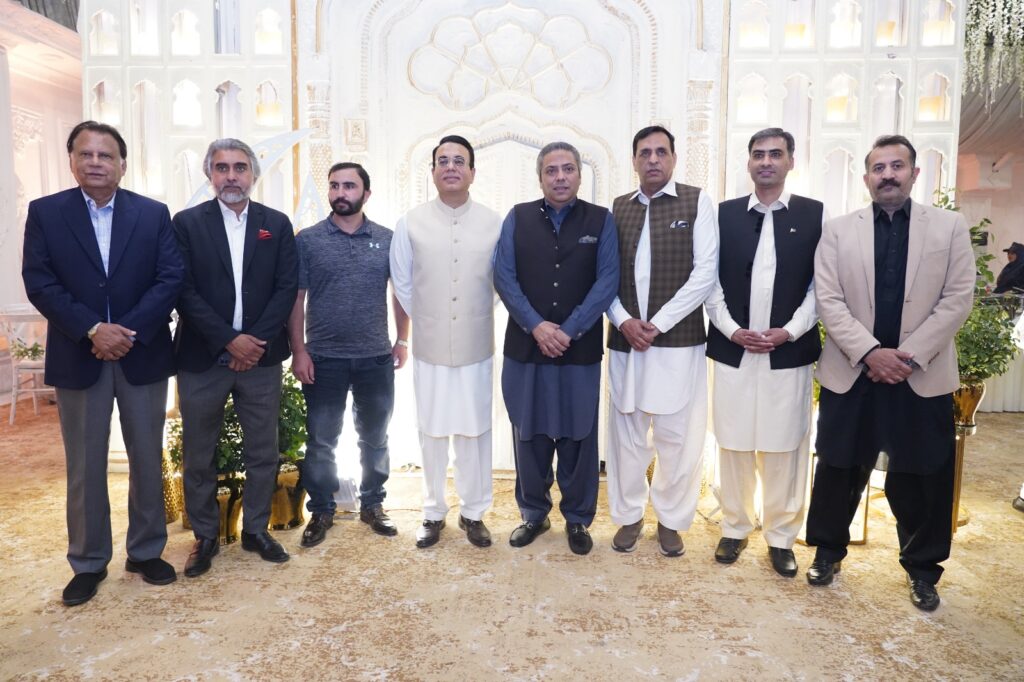 With the spirit of Ramadan emphasizing compassion, generosity, and self-improvement, this grand Iftar gathering was not just a celebration—it was a call to action for a brighter, more prosperous Pakistan.
With the spirit of Ramadan emphasizing compassion, generosity, and self-improvement, this grand Iftar gathering was not just a celebration—it was a call to action for a brighter, more prosperous Pakistan.

